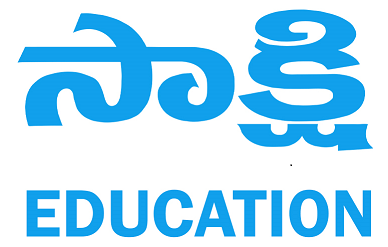Global Gender Gap Report 2024: Iceland Tops The List, Check India's Position!

Key Findings from the Gender Gap Index
The Gender Gap Index scores countries from 0 (complete inequality) to 1 (complete parity) across four sub-indices. It's the longest-running index of its kind, tracking progress in gender equality since 2006.
The report aims to:
Monitor gender gaps in health, education, the economy, and politics.
Assist countries in prioritizing actions to achieve gender equality within their specific contexts.
2024 Report Highlights
Globally, the gender gap stands at 68.5%, with 31.5% remaining unaddressed. Progress is slow, with a mere 0.1% improvement since 2023. At this pace, achieving full parity will take 134 years, exceeding the 2030 SDG target.
Political Empowerment shows the most significant gap (77.5% unaddressed), followed by Economic Participation and Opportunity (39.5% unaddressed).
Top Performers
Iceland retains its top spot for the 15th consecutive year, achieving 93.5% gender parity. Following Iceland are Finland, Norway, New Zealand, and Sweden.
Spain and Ireland made significant strides, climbing into the top 10 for 2024.
Regional Performance
Europe leads with 75% of its gender gap closed, followed by North America (74.8%) and Latin America & the Caribbean (74.2%).
The Middle East and North Africa region lags behind with only 61.7% closure.
Southern Asia ranks 7th with a gender parity score of 63.7%.
Economic and Employment Disparities
Women make up 42% of the workforce but hold only 31.7% of senior leadership positions. This highlights a significant drop (21.5%) from entry-level to managerial roles for women globally.
Economic conditions in 2023-24 have further hindered women's advancement to leadership roles.
Impact of Caregiving Responsibilities
Women's workforce participation is recovering from increased caregiving burdens, emphasizing the need for equitable care systems. While policies like paid parental leave are expanding, they remain insufficient in many countries.
Technology and Skills Gaps
Women are underrepresented in STEM fields, comprising only 28.2% of the workforce compared to 47.3% in non-STEM roles. Significant gender gaps persist in crucial future skills like AI, big data, and cybersecurity.
India's Performance
India's ranking slipped to 129th in 2024 from 127th in 2023. Within South Asia, it ranks 5th behind Bangladesh, Nepal, Sri Lanka, and Bhutan.
India has low economic parity, similar to Bangladesh, Sudan, Iran, Pakistan, and Morocco, with less than 30% gender parity in estimated income.
While India shows strong gender parity in secondary education enrollment, its political empowerment ranking is 65th globally. However, women's representation remains low at the federal level (6.9% in ministerial positions and 17.2% in Parliament).
Despite these challenges, India has closed 64.1% of its gender gap. The decline in ranking is due to lower scores in 'Educational Attainment' and 'Political Empowerment', despite slight improvements in 'Economic Participation and Opportunity'.
Initiatives to Reduce the Gender Gap
India has implemented various programs to promote gender equality, including Beti Bachao Beti Padhao, Mahila Shakti Kendra, Mahila Police Volunteers, Rashtriya Mahila Kosh, Sukanya Samriddhi Yojna, Kasturba Gandhi Balika Vidyalaya, and reservations for women in Panchayati Raj Institutions (33%).
The Constitution (106th Amendment) Act, 2023, reserves one-third of seats for women in Lok Sabha, State Legislative Assemblies, and the Legislative Assembly of Delhi.
Programs like Stand-Up India, Mahila-e-Haat, and the Entrepreneurship and Skill Development Programme (ESSDP) support female entrepreneurship.
Tags
- Global Gender Gap Report 2024
- The World Economic Forum
- WEF Report
- WEF index
- international current affairs
- Latest International CA
- Current Affairs
- Current Affairs 2024
- Daily Current Affairs
- Daily Current Affairs in English
- sakshi education current affairs
- sakshi education current affairs English
- trending current affairs
- Today Trending Current Affairs
- WEF
- Gender equality analysis
- Economic Participation and Opportunity
- Educational Attainment
- Gender gap trends
- Gender equality rankings
- Global economies comparison
- Gender data analysis
- Gender equality metrics
- women empowerment
- SakshiEducationUpdates




















